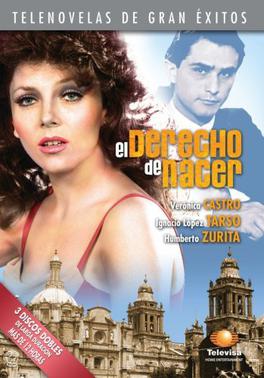
El derecho de nacer is a Mexican telenovela produced by Ernesto Alonso for Televisa in 1981. Based on the Cuban radionovela of the same name written by Félix B. Caignet adapted for TV by Fernanda Villeli and directed by Raúl Araiza.
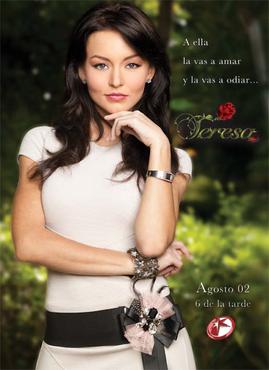
Teresa is a Mexican telenovela produced by José Alberto Castro for Televisa. It is a remake of the Mexican telenovela of the same name produced in 1959.
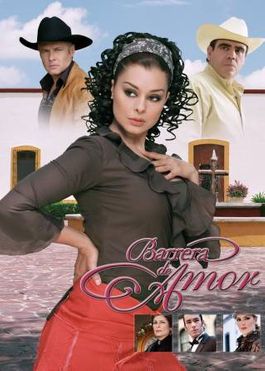
Barrera de amor is a Mexican telenovela produced by Ernesto Alonso for Televisa in 2005.
La Saga, Negocio de Familia was a popular Colombian soap opera aired in 2004 by Caracol TV and then after 2006 aired on GenTV in South Florida. The show follows the history of the Manrique family, which was prominent in the underworld of Bogotá, Colombia. This telenovela is characterized by an unconventional plot: unlike many others, it is not a love story, but several stories of events that occur through five generations of the same family. Moreover, there is no humor and the plot is marked by death, suffering and crime. It received the "Best Telenovela" award at the Colombian Television Awards in 2005.
Son amores is an Argentine telenovela produced by Pol-ka and issued by Canal 13 in the year 2002 and in the year 2003. It stars Mariano Martínez, Nicolás Cabré, Florencia Bertotti, Miguel Ángel Rodríguez and Millie Stegman. It is the telenovela of Pol-ka most awarded with 6 Martín Fierro Awards, 5 Clarín Awards and an INTE award.
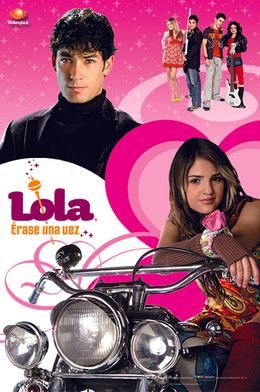
Lola, érase una vez, is a youth-targeted Mexican telenovela produced by Televisa that is remake of the Argentine global popularity and teen telenovela Floricienta. The show tells the story of a modern Cinderella, Lola, who works as a nanny and sings in a rock band and meets her so-called Prince Charming. It debuted in Mexico on February 26, 2007, starring Aarón Díaz and Eiza González, and was produced by Pedro Damián.

Tormenta en el paraíso is a telenovela produced by Juan Osorio for Televisa. The telenovela premiered on El Canal de las Estrellas on November 12, 2007 and ended on July 25, 2008. It stars Sara Maldonado, Erick Elías, Mariana Seoane and Alejandro Tommasi.
Casi Ángeles is an Argentine teen telenovela by Cris Morena which was aired by Telefe. Its first broadcast was on 21 March 2007 and it ended on 29 November 2010, with a total of 579 episodes divided over four seasons. A star-studded soap-opera, Casi Ángeles stars Nicolás Vázquez, Emilia Attias, Mariano Torre and Teen Angels. Casi Ángeles is considered one of the most successful Telenovelas in Argentinian television history. Also due to the success of the show, the pop band Teen Angels emerged, composed of Juan Pedro Lanzani, Mariana Espósito, Gastón Dalmau, Nicolás Riera, María Eugenia Suárez. In 2011, Rocío Igarzábal, who was a member of the main cast of the telenovela and had participated in several songs, replaced Suárez.

Marisol is a Mexican telenovela produced by Juan Osorio for Televisa in 1996. Telenovela is a remake of the 1977 Mexican telenovela Marcha nupcial. Famous and beloved Enrique Álvarez Félix died after he finished his work in Marisol.

Física o Química is a Spanish drama television series produced by Ida y Vuelta Producciones for Antena 3 that was originally broadcast from 4 February 2008 to 13 June 2011. In this series they talked about topics such as: drug abuse, suicide, racism, domestic violence, rape, sex, virginity, pregnancy, homosexuality, anorexia nervosa, bulimia nervosa, cheating, forced marriage, same-sex marriage, adoption, cancer, lack of self-confidence, death, homophobia, xenophobia, prostitution, unprotected sex and forbidden love.

La que se avecina is a Spanish television situation comedy created by Alberto Caballero, Laura Caballero and Daniel Deorador. The show is set in Mirador de Montepinar, a condominium located in the suburbs of Madrid. The show is an indirect successor to the Antena 3 comedy Aquí no hay quien viva. The title is both an expression meaning "the trouble that is approaching" and a pun on "la casa vecina" - the neighbouring house - and so it alludes to the show's neighbourly setting as well as the regular quarrels between the characters.
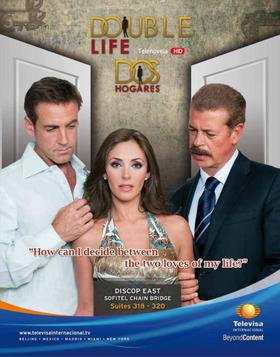
Dos hogares is a Spanish-language Mexican drama thriller telenovela produced by Emilio Larrosa for Televisa in 2011.
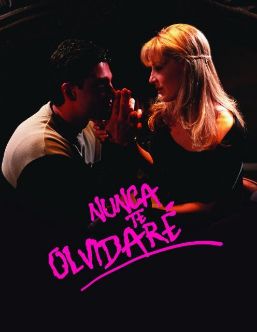
Nunca te olvidaré is a Mexican telenovela produced by Juan Osorio and Carlos Moreno Laguillo for Televisa in 1999. It is based on a novel by Caridad Bravo Adams. It aired on Canal de Las Estrellas from January 18, 1999 to May 28, 1999.
Tiempo de amar is a Mexican telenovela produced by Silvia Pinal for Televisa in 1987. It is an original story by Alberto Cura and directed by Rafael Banquells.
El secreto de Puente Viejo is a Spanish soap opera produced by Boomerang TV that originally aired from 23 February 2011 to 20 May 2020 on Antena 3.
Capricho is a Mexican telenovela produced by Carlos Sotomayor for Televisa in 1993.
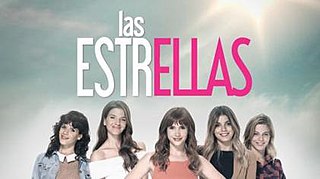
Las Estrellas is an Argentine soap opera produced by Pol-Ka Producciones for El Trece. Starring Celeste Cid, Marcela Kloosterboer, Natalie Pérez, Violeta Urtizberea, Justina Bustos, and Co-Starring, Esteban Lamothe, Gonzalo Valenzuela, Luciano Castro, Nicolás Riera, Nicolás Francella and Julieta Nair Calvo, it also had the antagonistic participation of Rafael Ferro. From May 29, 2017, to January 23, 2018.

Cien días para enamorarse is a 2018 Argentine telenovela produced by Underground Producciones and broadcast by Telefe from 7 May to 12 December 2018.











